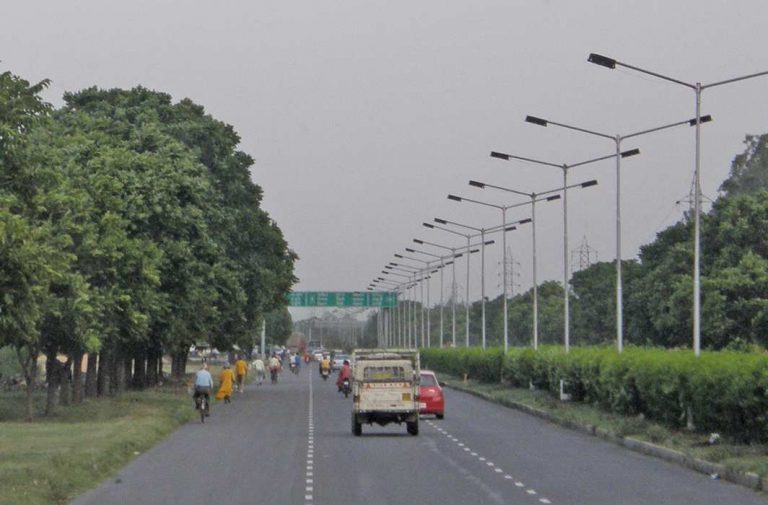
The Punjab and Haryana High Court has dismissed a PIL regarding the redesignation of some highways as major district roads. This will enable the Administration to auction liquor vends on these roads
~By Vipin Pubby in Chandigarh
The Punjab and Haryana High Court on March 29 dismissed a petition against Chandigarh Union Territory’s decision to rename roads categorised “State Highways” as “Major District Roads”, saying there was no violation of statutory provisions in re-categorising the roads. The judgment would enable the Administration to auction liquor vends on these roads.
Back in 2005, some well-meaning officers of the Union Territory of Chandigarh re-designated some arterial roads in the city as “state highways” with the sole idea of getting more funds from the centre for the upkeep and maintenance of these roads. No one appeared to mind this till the issue reached the Punjab and Haryana High Court recently.
Chandigarh UT, which is also the joint capital of Punjab and Haryana, is spread over an area of 64 sqkm with hardly any scope of having state highways like other states. Even though both the states governments function from Chandigarh, they do not share the costs of maintenance and upkeep of the city. It depends entirely on the centre for funding and its officers are consistently under pressure to raise funds from the UT or arrange it from the centre.
A senior officer with the Chandigarh Administration in 2005 said that the roads were renamed to get funds under a particular central government scheme. No one had then anticipated that this harmless redesignation could lead to a heavy loss of revenue for the UT.
If vends within the vicinity of the “national and state highways” are shut, it would translate into a heavy loss of revenue.
The issue came to the fore in December last year when the Supreme Court directed that all liquor vends must be shifted away from national and state highways and be at least 500 meters away. This caused a major problem in Chandigarh as roads designated as state highways are actually inter-sector roads. Each sector in Chandigarh is 1,200 m by 800 m. Almost all are self-contained residential sectors and have showrooms where, besides shops, a large number of liquor vends are located.
In a notification issued on March 16 this year, the engineering wing of Chandigarh Administration modified its earlier notification issued on October 21, 2005, and changed the nomenclature of all V-1 (roads connecting Chandigarh to neighbouring towns), V-2 (arterial roads) and V-3 (sector-dividing roads) from “state Highways” to “major district roads”. As even V-1 and V-2 roads are inter-sectoral roads, practically all roads barring one (Madhya Marg which is also a National Highway) were affected.
At the core of the issue is the revenue generated by the liquor vends. The UT of Chandigarh has limited sources of revenue and the centre has been repeatedly asking it to increase it to partly meet the costs of its upkeep and development. Auction of liquor vends has been a major source of income with a revenue of over Rs 200 crore. Thus, if liquor vends within the vicinity of the “national and state highways” are shut, it would affect 84 of the 99 vends. This would translate into a heavy loss of revenue.
In order to avoid this loss, a seven-member committee recommended a change of nomenclature and the administration chose to redesignate the roads and make these eligible for hosting liquor vends.
But the Administration had not thought that an NGO, Arrivesafe, would challenge the change of nomenclature. Its plea is that a huge number of road accidents take place due to drunken driving and that the vends should be banned from sites close to roads. Harman Singh Sidhu, chairman of Arrive-safe Society has termed the change of nomenclature as a “colourable exercise of power” and a violation of the Supreme Court’s directives issued on December 15 last.
The UT Administration, through its counsel Suvir Sehgal, submitted that there were no specific rules for notifying state highways. He also said that the UT Administration had taken a number of steps to curb drunken driving. He also took the plea that if the status of the roads is not changed, it would not be possible to allocate liquor vends in the city and these shall perforce have to be shifted to villages within the UT. This may cause social and law and order problems “and spell doom” for the villages.
The High Court seemed to have heard this plea.

